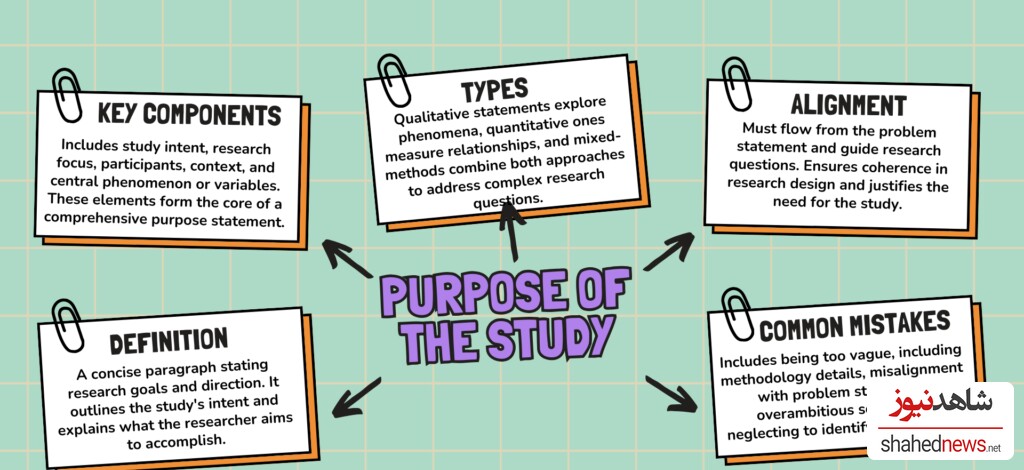SHAHEDNEWS; Your Statement of Purpose (SOP) is the core of your university application, providing a unique chance to demonstrate your passion, goals, and academic preparation. Writing a captivating SOP entails combining personal tales with professional objectives while following a clear, controlled approach.

According to SHAHEDNEWS, applying to a university is a pivotal moment in your academic career, and a well-written Statement of Purpose (SOP) may make all the difference. Your SOP is more than just a paper; it's an opportunity to share your story—your motivations, successes, and future goals—and persuade admissions committees that you're the best match for their school.
However, drafting a SOP might be intimidating. How can you summarize your life, goals, and qualifications into a few paragraphs? Which tone should you use? What information should you include? This handbook answers these concerns and more, providing practical advice to help you create an outstanding SOP.
An SOP combines your personal tale and professional pitch. Universities search for:
Your Motivation: Why do you wish to complete this program?
Your Fit: How do your talents and experiences match the program's objectives?
Your Vision: What are your academic and professional goals?
Your Personality: What distinguishes you from other applicants?
Remember that admissions committees analyze hundreds of applications. A fascinating SOP may help you become memorable.

Your introductory paragraph establishes the tone for the entire SOP. Begin with a hook that draws attention and reveals your enthusiasm. Avoid using clichés like "I have always dreamed of...". Instead, describe a single experience or understanding that piqued your curiosity. Example:
- A weakness: "I have always been interested in computer science."
- Strong: "The day I coded my first app and saw it solve a real-world problem for my classmates, I knew computer science was more than a subject—it was my calling."
In the next area, describe your academic and professional aspirations. Show how the training corresponds with your goals. Be explicit about what you want to achieve. Example:
- Negative: "I want to improve my skills in engineering."
- Particularly strong: "I aim to specialize in sustainable energy solutions and contribute to designing affordable solar technologies for underprivileged communities."
This is your time to demonstrate your credentials, talents, and accomplishments. Internships, initiatives, leadership roles, and academic successes may all be used to demonstrate your devotion. Example:
- Weak:"I have taken many math courses."
- Very good: "Completing advanced calculus and linear algebra courses with distinction honed my analytical thinking, which I later applied to model efficient transportation networks during my internship."
Show that you have done your research. Mention any unique instructors, facilities, courses, or opportunities that make this program an ideal match. Example: "I am particularly excited about Professor Smith's research on renewable energy systems, and I look forward to contributing to projects at your state-of-the-art Clean Energy Lab."

An engaging standard operating procedure strikes a mix between professionalism and personality. Share personal tales that shaped your path without going into unnecessary detail. Example: "Growing up in a remote town with little access to healthcare motivated me to seek a profession in medical technology. Witnessing the transforming influence of a mobile health clinic in my neighborhood reinforced my determination to provide accessible solutions."
If you have any academic gaps or flaws, discuss them openly while focusing on what you learnt and how you progressed. Example: "Although my first semester grades were lower than expected, the experience taught me the value of time management and resilience." By the second semester, I had a 4.0 GPA and led two student clubs.
Finish your SOP by summarizing your main points and expressing your enthusiasm for the program. Express thanks for the opportunity and confidence in your prospective contributions. Example: "With my background in renewable energy research and passion for sustainable development, I am excited to contribute to your program's mission of creating impactful solutions." Thank you for taking the time to examine my application; I am really pleased about the opportunity to study and improve at your prestigious university."
Strategies for Writing a Winning SOP
1. Understand the Prompt: Certain colleges ask particular questions or prompts. Customise your SOP to address them directly.
2. Use a Clear Structure: Break out your SOP into logical sections: introduction, aims, successes, university fit, and conclusion.
3. Be Authentic: Avoid exaggerating or fabricating events. Authenticity appeals to readers.
4. Maintain a Professional Tone: Avoid informal language when expressing your excitement.
5. Keep It Concise: Most SOPs are between 500 and 1000 words. Maintain the word limit and minimize extraneous information.
6. Edit and Proofread: Typos and grammatical problems can damage your reputation. Review your SOP several times, and get comments from reliable mentors.
Common Mistakes To Avoid
1. Generic Statements: Avoid ambiguous words like "I love learning." Be precise and show evidence.
2. Overwhelming Achievements: Instead of detailing everything, highlight a few memorable events.
3. Ignoring the University's Focus: Customize your SOP for each program rather to adopting a general template.
4. Beginning Late: A hasty SOP lacks depth and refinement. Start early to allow yourself plenty of time.
Writing a Statement of Purpose involves both art and science. It involves reflection, clarity, and a purposeful approach to telling your narrative. You may create a memorable SOP by concentrating on your motivations, achievements, and program fit. Remember, your SOP is more than simply a document; it reflects your goals and potential. With careful planning and true enthusiasm, you can craft a captivating story that pushes you to academic and professional success. Begin early, write truthfully, and let your tale shine.